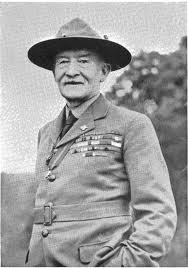Robert Baden-Powell
Contents
Country
Great Britain
Birth - Death
1857 - 1941
Occupation
Military
Notable Achievements
OM, KCB
Description
A distinguished member of the British Army, Baron Robert Baden-Powell went on to found the global Boy Scouts and Girl Guides Associations. Both organizations were intended to be quasi-military style training organizations for youths around the world.
Educated at the prestigious Charterhouse public school on a scholarship, Baden-Powell joined the British Army on graduation in 1876 with the rank of lieutenant when he failed to gain entry to the University of Oxford. His first military posting was in South Africa, followed by a stint in Malta, and then back to Africa. During this time, he participated in many active military campaigns with distinction and was promoted to Major General in 1900. His service was rewarded with the investment by King Edward VII as a Companion of the Order of Bath (CB).
Baden-Powell followed this as Inspector General of Cavalry in 1903, and then commanded the newly-formed Territorial Force in 1907. Baden-Powell retired from the army at the end of that year with the rank of Lieutenant-General. Although he offered his services during the First World War, he was not called up. Throughout his military career, Baden-Powell wrote 9 military training books between 1884 and 1914.
It was on his return from Africa in 1903 that Baden-Powell took on the task to execute on his plan to create a youth scouting movement. The concept came from a book he wrote, Aids to Scouting (1899) which was immensely popular with the public. The first boy’s scouting group was established in 1907. He published a second book, Scouting for Boys (1908). Subsequently, scouting troops popped up around the country. Throughout, Baden-Powell wrote a total of 12 scouting books.
The first Girl Guides group was created in 1909 when a large number of girls showed up for a scout troop rally in London. His sister, Agnes, was put in charge of this girl’s organization.
The first World Scout Jamboree was held in London in 1920, with international participants from many countries. Baden-Powell continued to be active with the movement as Chief Scout until he retired in 1937. In the interim, he received numerous international awards and honours, notably his elevation to the peerage in 1921 and the Order of Merit in 1937. Other awards came from Greece, Austria, Sweden, Denmark, Poland, France, Hungary, and 21 other countries.
Most of Baden-Powell’s life was spent in same-sex environments, and it is known that his most intimate personal connection was with Kenneth McLaren, a fellow army officer. Baden-Powell identified strongly with an all-male culture. He was extremely close to his mother throughout his life. Biographers generally confirm his homosexual tendencies despite his marriage, at age 55, to Olave Soames – it is agreed that this was a non-sexual relationship.
Nevertheless, the concept of Baden-Powell as a homosexual is often difficult for many to accept given the idolization of strong military soldiers who represent the ideals of manliness. Baden-Powell certainly was effective in publicly repressing any act that could be seen as contentious on the subject. In his autobiography, Baden-Powell mentions his dreams of boys and acknowledges that sexual desire between young boys is transitory and needs suppression.
Baden-Powell’s acceptance of the Victorian notion of repression of same-sex desire does not negate the fact of his intense desire for such a relationship. It is the conclusion of his biographer, Tim Jeal, that all evidence points to the fact that Baden-Powell was a repressed homosexual.
Of course, the irony lies in the fact that the Boys Scouts of America ardently refuses to allow homosexuals to be members of its organization. This is in direct contrast to the accepting policies of all other international scouting organizations. Is it rational to suppose that suppression of a natural desire for a same-sex relationship, by legislation or moral suasion, will somehow remove the desire? History shows that this is not likely.
See Also
- LGBTQ Recipients of the Order of Merit
- School Teachers, Researchers and Education Staff Who Identify as LGBTQ

